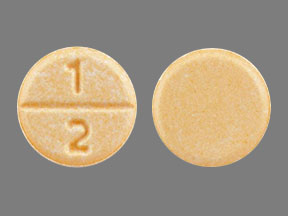
Klonopin Coupons & Savings Card – Discount Prices from $3.26
Brand for: Clonazepam
My prescription
Edit
0.5MG, Clonazepam (30 Tablets)
Select pharmacy

CVS
$18.93
COUPON PRICE
Walmart
$3.26
COUPON PRICE
Walgreens
$9.65
COUPON PRICE
Albertsons
$11.65
COUPON PRICEKlonopin savings card
Show this card to your pharmacist
Walmart
$3.26
BIN
ID
PCN
GRP
019876
LH4CDBA84E
CHIPPO
LHX
Powered by
Related benzodiazepines prescriptions
More prescriptions for panic disorder
Related benzodiazepines prescriptions
More prescriptions for panic disorder
Price history for Klonopin (brand) & Clonazepam (generic)
30 Tablets, 0.5MG
Average retail price for Klonopin
Average retail price for Clonazepam
Average SaveHealth price for Clonazepam
Our price history data is based on aggregated prescription data collected from participating pharmacies in America. Our prescription data updates daily to reflect the latest price changes. If you notice a missing data point, it means there wasn't sufficient data available to generate a monetary value for that date.
Over the last 12 months, the average discount price of Klonopin is $14.98 using the SaveHealth savings card. That's an average savings of 90.27% on Klonopin with our discount card.
*Retail prices are based on pharmacy claims data, and may not be accurate when we don't have enough claims.
Klonopin (Clonazepam) dosage forms
Dosage Quantity Price from Per unit 0.5MG 30 Tablets $3.26 $0.11 0.5MG 45 Tablets $3.64 $0.08 0.5MG 60 Tablets $4.02 $0.07 0.5MG 90 Tablets $11.29 $0.13 0.5MG 120 Tablets $12.05 $0.10 0.5MG 180 Tablets $18.89 $0.10 1MG 30 Tablets $3.46 $0.12 1MG 45 Tablets $3.94 $0.09 1MG 60 Tablets $4.42 $0.07 1MG 90 Tablets $11.89 $0.13
| Dosage | Quantity | Price from | Per unit |
|---|---|---|---|
| 0.5MG | 30 Tablets | $3.26 | $0.11 |
| 0.5MG | 45 Tablets | $3.64 | $0.08 |
| 0.5MG | 60 Tablets | $4.02 | $0.07 |
| 0.5MG | 90 Tablets | $11.29 | $0.13 |
| 0.5MG | 120 Tablets | $12.05 | $0.10 |
| 0.5MG | 180 Tablets | $18.89 | $0.10 |
| 1MG | 30 Tablets | $3.46 | $0.12 |
| 1MG | 45 Tablets | $3.94 | $0.09 |
| 1MG | 60 Tablets | $4.42 | $0.07 |
| 1MG | 90 Tablets | $11.89 | $0.13 |
| 1MG | 120 Tablets | $12.85 | $0.11 |
| 2MG | 10 Tablets | $2.91 | $0.29 |
| 2MG | 30 Tablets | $3.74 | $0.13 |
| 2MG | 45 Tablets | $4.36 | $0.10 |
| 2MG | 60 Tablets | $4.98 | $0.08 |
| 2MG | 90 Tablets | $12.72 | $0.14 |
| 2MG | 120 Tablets | $13.96 | $0.12 |
What is Klonopin best used for?
Klonopin is best used for managing seizure disorders and panic disorders. It is a type of benzodiazepine that helps to calm the brain and nerves.
What is the main use of Klonopin?
Klonopin is primarily used to treat seizure disorders and panic disorders. It is a type of benzodiazepine that helps to calm the brain and nerves.
When should you not take Klonopin?
Klonopin should not be taken if the individual has a known allergy to clonazepam or any of the ingredients in the medication. It is also contraindicated in individuals with significant liver disease, acute narrow-angle glaucoma, or a history of drug or alcohol addiction. Additionally, it should be used with caution in individuals with respiratory issues, such as sleep apnea or chronic obstructive pulmonary disease (COPD). Pregnant or breastfeeding women should consult their healthcare provider before taking Klonopin, as it may pose risks to the fetus or infant. Always consult a healthcare professional before starting or stopping any medication.
What drug is comparable to Klonopin?
A drug that is comparable to Klonopin (clonazepam) is Ativan (lorazepam). Both are benzodiazepines and are used to treat anxiety disorders, among other conditions. However, they may differ in terms of onset, duration of action, and specific indications, so it is important for a healthcare provider to determine the most appropriate medication for an individual's needs.
Will Klonopin help me calm down?
Klonopin, also known as clonazepam, is a medication that belongs to the class of drugs called benzodiazepines. It is commonly prescribed to help manage anxiety and panic disorders, and it can have a calming effect. However, it is important for the individual to consult with a healthcare provider to determine if Klonopin is appropriate for their specific situation and to discuss potential side effects and risks.
